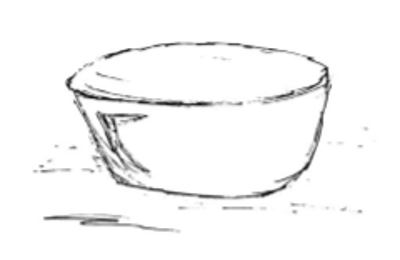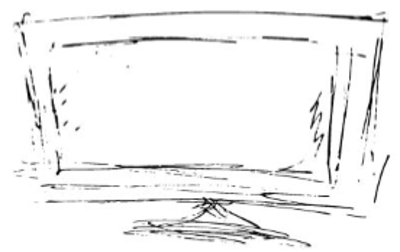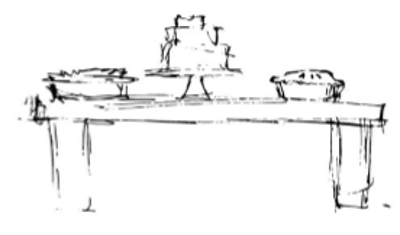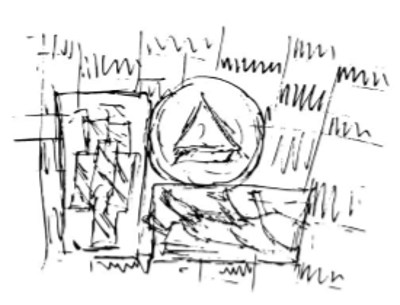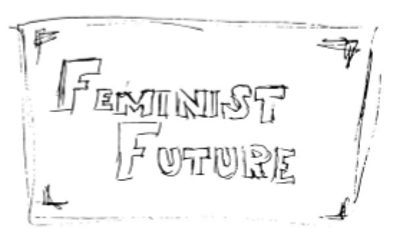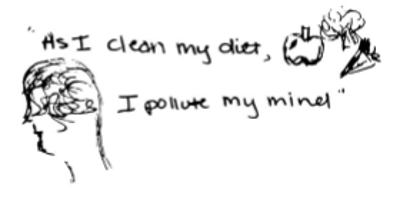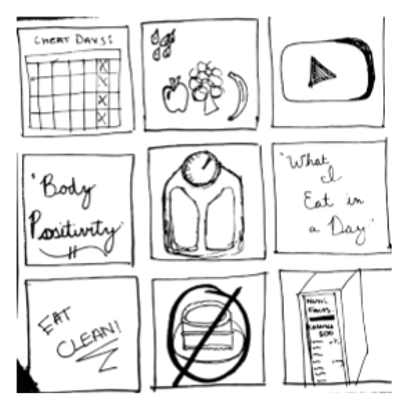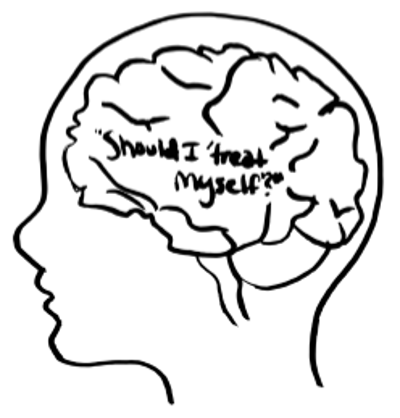On Food, Body, and Self-Love
Content Warning: Mention of weight and disordered eating.
5 YEARS OLD
I stand on tiptoes so that I can reach the big silver bowl in front of me, leveraging my tiny body over the counter to mix the thin batter. My mother patiently oversees my slow, unsteady contribution until she takes over, whisking quickly. I watch her in admiration as she expertly pours it onto the special pans we brought back packed in suitcases. Sunday mornings were for crepes and endless options of jams, sugar and Nutella fillings. I mirror the way my mom folds them over into easy-to-hold triangles. It’s my favorite day of the week.
10 YEARS OLD
I watch Food Network after school. Both my parents are away at work, so I cook myself scrambled eggs for lunch (I never eat the gross stuff they serve in the cafeteria) and pair it with a toasted piece of the pita bread that, thanks to my Arab dad, we always have stockpiled in the freezer.
I am probably the only kid interested in the creations of Ina Garten and Giada de Laurentiis, but I watch them anyways, fascinated nonetheless. I love seeing the ways in which ingredients bring life to imagination, how spices and textures construct something uniquely original or the product of a millennium of history. My favorite part is the end of the show, when the cook shares their creation with a table of family and friends. They smile and laugh and pass around pretty ceramic bowls. There is something therapeutic about this process of making and giving, even from just watching.
12 YEARS OLD
I pursue this therapy for myself. I enter a phase—I make more cobblers, crumbles and cakes than my four-person family can keep up with. “I’m ten pounds heavier, I swear!” my dad jokes, as he takes seconds. I laugh, because I know he’ll have thirds, and think about my next creation: crumbling cold butter into flour to make crust from scratch, watching custard thicken in a saucepan, resisting the urge to open an oven door so that my soufflé won’t deflate. I love having the honor of cutting slices to pass around the table.
14 YEARS OLD
I weigh 115 pounds. My body is closer to “lanky” than “curvy.” I am tall and thin and my limbs are
not sure of themselves. My jeans are a size 4— which feel big at the time because I remember when I was a 2, and a time before that when I was a 0. My thighs don’t touch.
One summer visiting family in Egypt, I feel at home when I see the feast in front of me: grape leaves stuffed and spiced, thin buttery sheets of phyllo dough layered with seasoned ground beef. Molds of perfectly cooked white rice tower over braised lamb with pieces of pita absorbing the sauce.
My doting aunts comment how they don’t have to worry about me being shy at the dinner table, because I am always clear about asking for seconds. It’s a good thing – it’s not like I gain weight when I eat anyways. They’re glad I like the food they worked so hard on.
15 YEARS OLD
I read about anorexia and bulimia in health class, and I think to myself, what poor, sad girls. We learn the scientific facts about how the acid can erode your throat and how you can lose your period. We talk in my favorite student group, Feminist Future, about how the media sets unattainable beauty standards for young girls. I learn terms like “body positivity” and “fat shaming” and I think that I would never let myself become one of those sad girls.
17 YEARS OLD
I weigh 150 pounds. Lanky has morphed into hips and thighs that graze each other as I walk. I am a size 8 or 10, M or L. I have outgrown the parameters of “okay,” that at some point I had made up.
I don’t see “growing up.” I see “change,” and change is scary. But perfectionism has worked for me in school. With enough studying, I can get straight As. With enough discipline I can stop changing.
I go on a journey of health. I read “clean eating” blogs and cook their recipes. I try to make my family eat more vegetables, and meticulously read nutrition labels, closely scanning the text for the many names of hidden sugars. There is something sweet in the praise I give myself.
I settle in on a Sunday evening, looking forward to a YouTuber’s “What I Eat in A Day” video that is sure to pop up in my subscription box. Aesthetically beautiful, full of new ideas and ways to incorporate into my diet the almond milk and chia seeds I’ve asked my parents to get, wholesale and affordable, at Costco. I aspire for a day of eating that could mirror that perfection. Where I don’t mess up my progress and hard work with chocolate before bed, or a side of chips.
We all are allowed our “guilty pleasures,” but mine actually make me feel deeply, depressingly guilty. Still, I am spared from the conditions those sad girls have. I am not anorexic. I do not have a “real” condition. I simply have a state of mind that has been approved of and conditioned until I forget it could be wrong.
I still bake, but I wonder if I had done well enough up to this point to deserve a slice. I eat it anyways. I feel a little bad and tell myself it’s fine but I don’t always feel fine.
I tell myself I know better than to worry about those standards of beauty I rail against and tell my friends not to listen to. I am doing this for my health. By most metrics, I am doing everything right.
As I clean my diet, I pollute my mind.
19 YEARS OLD
I think I just get tired. I come to college and I no longer can control everything I put into my body. There is a barrier between me and the BD workers who make my egg sandwich and stirfry. I gain weight. I exercise. I eventually slow the battle in my head. Have I won?
Health is more than the vitamins or fat or sugar or whole grains I put into my body. Health is my mind. Health is being at peace with myself so I can appreciate how long I can dance, how far I can walk, how strong I can hug. What started as an attempt at control began to control me, and I wanted to let go.
I still eat my fruits and vegetables. But I try to stop saying that foods are “so bad” or “guilty pleasures.” I am privileged enough that food can just be a pleasure.
I try to detach body from food from value.
I am not fixed. I still wonder some days if I deserve to “treat myself.” I wonder how many girls, behind their seemingly balanced meals, and perfectly filtered Instagram photos of healthy food, are hiding stories like mine.
Confused because she’s a feminist who knows better than to buy into all of that, but she does anyway. Confused because she wants to tell her friends, picking at themselves in mirrors, that they’re beautiful, but can’t find a way to tell it to herself. Confused because she was doing all the right things, so she wonders why things still feel so wrong. Wondering when things stopped being as simple as stirring batter round and round on a Sunday morning.
I want to tell her she can also let go. Let us go back to when food was something to love and a way to love others, and most of all, a way to love ourselves. Let’s go, together.
Hanna Khalil ‘20 studies in the College of Arts & Sciences. She can be reached at hannakhalil@wustl.edu.
